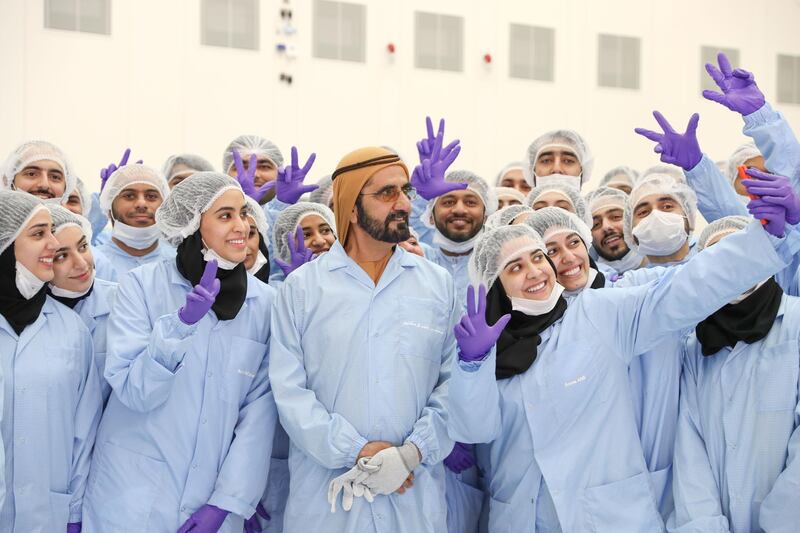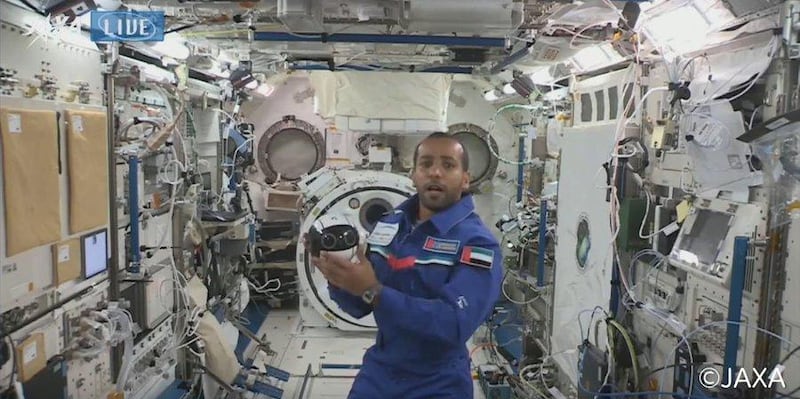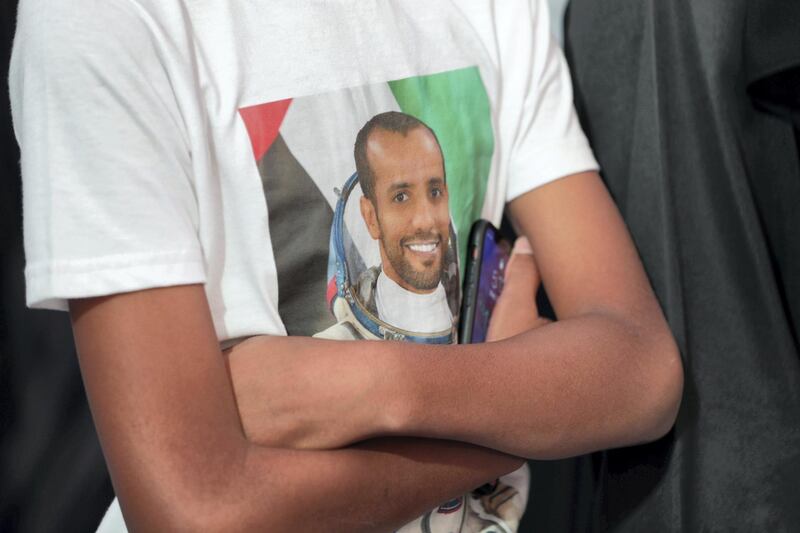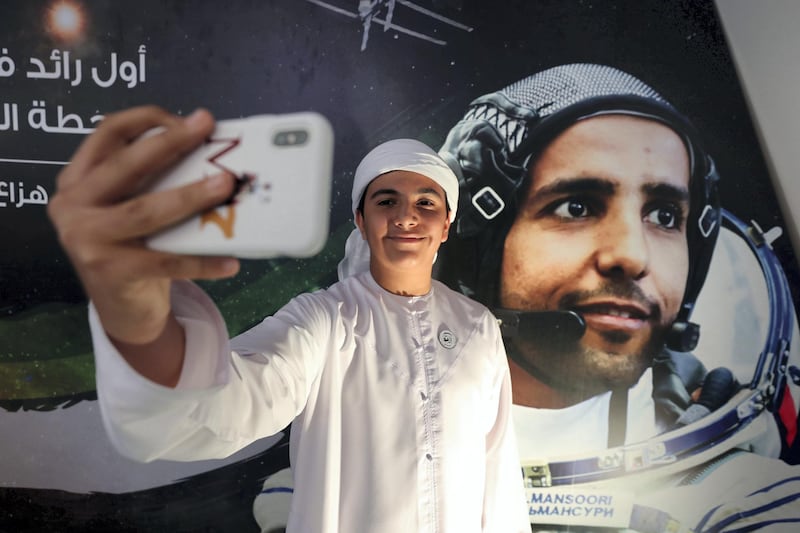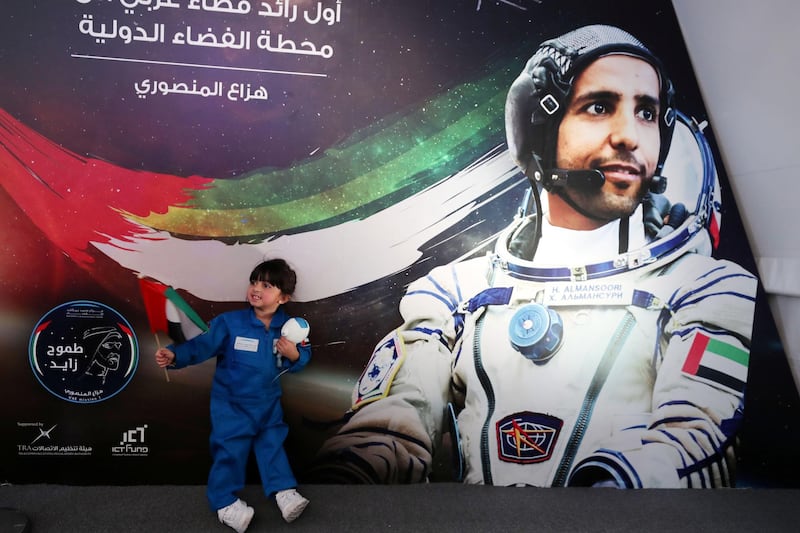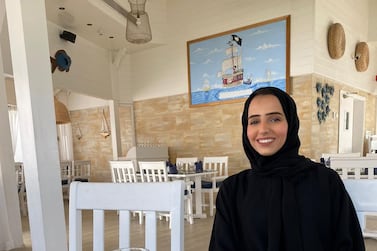Emirati women are playing a pivotal role in UAE’s space sector, working on several projects that have set history for the nation.
Their efforts have been highlighted on Emirati Women’s Day, which falls on each year on August 28.
At the Mohammed bin Rashid Space Centre (MBRSC), 42 per cent of the workforce are Emirati women. Their milestone projects consist of a high women employment rate, including 70 per cent in UAE’s Astronaut Programme and 34 per cent in the Hope Mars Mission.
The science team of the Mars mission, which is 80 per cent female, will analyse the data that is received from the Hope probe once it reaches the Red Planet in February.
“When the data comes from the probe, all of the Emirati science team will be the first ones to work on it and that’s exciting for all of us. It’s something we’ve been preparing to do,” said Fatma Hussain Lootah, the instrument science team manager for the Mars mission.
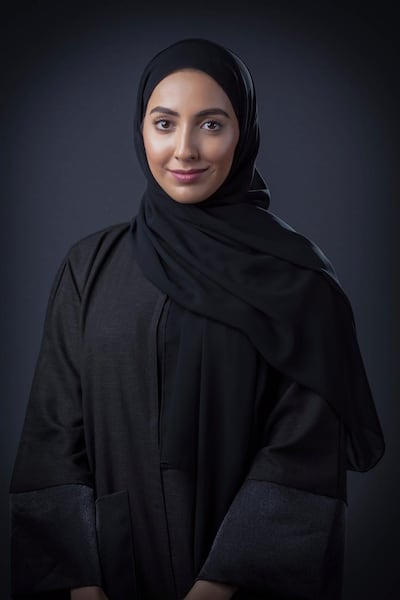
The Mars Hope spacecraft was launched on July 20 and has already travelled more than 100 million kilometres, completing 20 per cent of its journey.
As the Arab world’s first interplanetary mission, the probe will send back one terabyte of data on Mars’ dynamic weather conditions over a period of two Earth years.
Speaking to The National, Ms Lootah said it will be a "proud moment" for Emirati women and the rest of the team when Martian data starts coming in.
“When the space sector was being set up, everyone knew women would take on important roles because women empowerment was so normalised here,” she said.
Ms Lootah has also played a role in setting up several education programmes at the space centre to help the next generation pursue space-related careers. These include the ‘Like a Scientist’ camp and a teachers' ambassadors programme.
Emirati women have also shown interest in becoming the Arab world's first female astronaut, with 1,400 applications that poured in this year from women for the second UAE astronaut hunt – that's about 250 more than in 2018.
Two new astronauts will be recruited to UAE’s growing astronaut corps, which already includes Maj Hazza Al Mansouri and Dr Sultan Al Neyadi.
Salem Al Marri, head of the astronaut programme, had told The National that the space centre "would definitely" like to see a woman get selected.
"What I’ve initially seen from the women that have applied, we’ve got some really good candidates. The quality that we have this time around is really high,” said Mr Al Marri.
However, he said that only the most suitable candidate will be chosen for the coveted role, whether that is male or female.
Yousuf Hamad Al Shaibani, director-general of MBRSC, said women will continue to play a central role in the nation’s space sector.
“Emirati women have stood by us since the beginning of our journey – from launching the first 100 per cent Emirati satellite, sending the first Emirati astronaut into space and launching the first Arab interplanetary probe,” he said.
“Together, we will continue on our journey of exploration, to keep our country among the leading nations of the world and our women will remain a role model for everyone who is seeking to achieve the impossible.”
